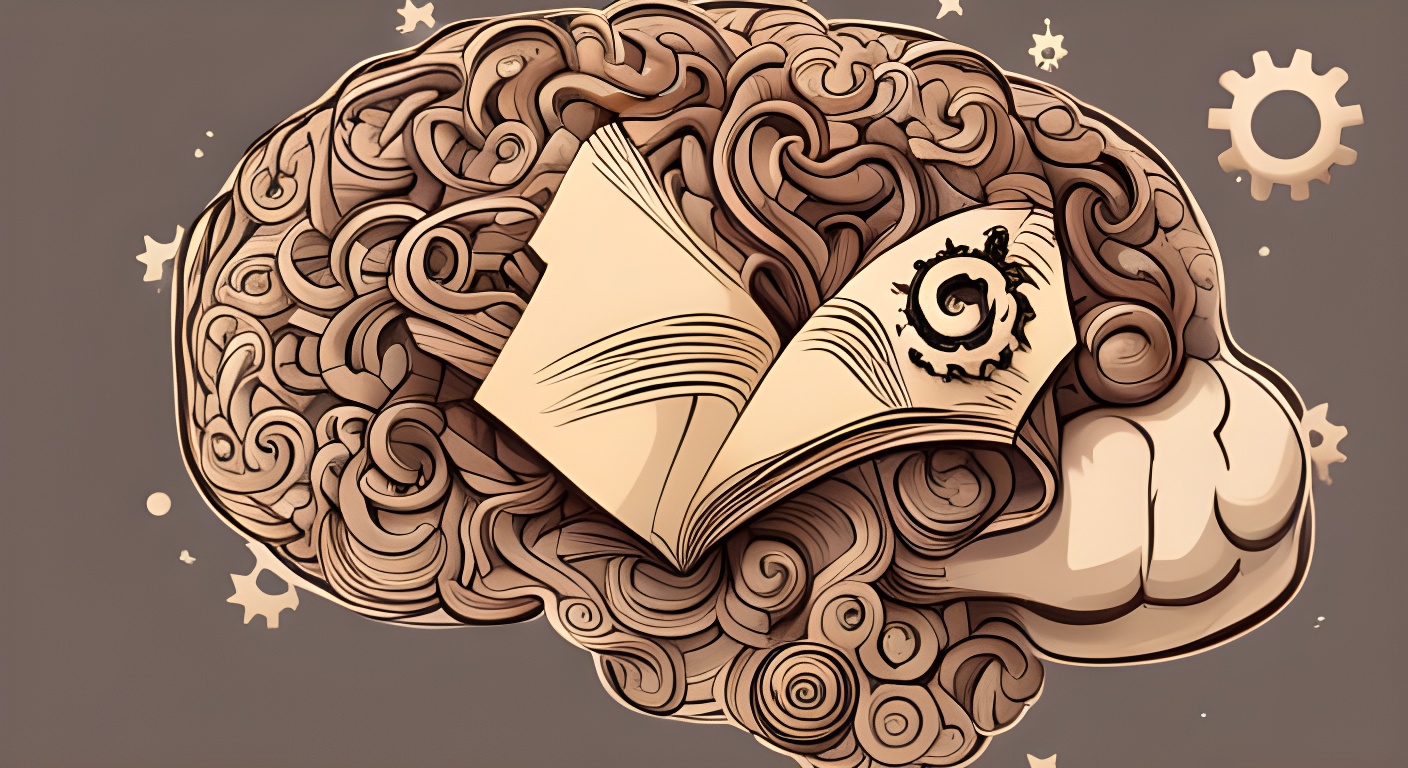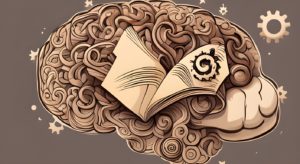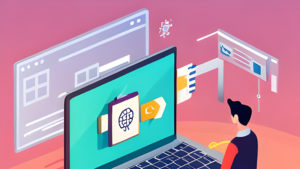The Science Behind Metacognitive Learning: Understanding How We Learn to Learn

Table of Contents
A Guide to Metacognitive Learning
Have you ever wondered how your brain takes in and processes new information? Are you curious about the science behind the learning process? In this article, we delve into the fascinating world of metacognitive learning and uncover the secrets of how we learn to learn.
Understanding Metacognition
Before we get into metacognitive learning we need to talk about metacognition. While metacognition and metacognitive learning are closely related, they are not identical twins.
Metacognition refers to our ability to reflect on our own thinking, to be aware of our cognitive processes, and to control and regulate our learning.
It involves understanding how to set goals, plan, monitor progress, and evaluate our performance. By developing metacognitive strategies, we become more efficient and effective learners.
Metacognition can be divided into two main components: metacognitive knowledge and metacognitive regulation.
- Metacognitive knowledge refers to our understanding of how we learn
- metacognitive regulation refers to the strategies we use to control and manage our learning.
These components work together to enhance our learning experience and help us become more self-directed learners.
What is Metacognitive Learning?
Metacognitive learning is the practice of applying metacognition (our skills in self-reflection, self-assessment, and self-regulation) into our educational experiences. By doing so, we’re actively participating in out own education, instead of just rehearsing information.
With metacognitive learning we’ll try to use our own understanding of how we learn and understand things. It encapsulates planning, monitoring, and evaluating learning strategies and performance.
By giving ourselves constant feedback in this way, we can identify our knowledge gaps, refine our learning approaches, and efficiently tackle cognitive tasks. Metacognitive learning pushes students to become self-regulated learners who master not only the subject matter at hand, but the art of learning itself.
The importance of metacognitive learning
Metacognitive learning plays a critical role in our educational and professional endeavors. By becoming aware of our learning processes, we can identify our strengths and weaknesses, set realistic goals, and make informed decisions about how to approach new tasks and challenges.
Research has shown that students with strong metacognitive skills tend to perform better academically. They are more likely to engage in effective study habits, such as setting specific goals, organizing their study materials, and monitoring their understanding of the material. In addition, individuals with metacognitive skills are better able to adapt to new situations, solve problems, and make informed decisions.

The science behind metacognitive learning
Understanding the science behind metacognitive learning requires examining the cognitive processes that underlie effective learning. One such process is metacognitive monitoring. This is the ability to evaluate our own understanding and knowledge. This monitoring allows us to identify problems in our knowledge. We can then try to address these problems.
metacognitive monitoring is the ability to assess one’s own understanding and knowledge, and it is a crucial component of effective learning. This monitoring allows learners to identify gaps in their knowledge and take appropriate actions to fill those gaps.
Peyman Abbasi (2022). Source.
Another important cognitive process is metacognitive control, which refers to the strategies we use to regulate our learning. This includes planning, organizing, and managing our time and resources effectively. By using metacognitive control, we can optimize our learning experience and improve our overall performance.
| Factor | Impact of Metacognitive Control |
|---|---|
| Planning | Enables learners to devise effective study schedules, improving learning outcomes. |
| Organizing | Helps in judiciously selecting items for study and re-study, enhancing comprehension and retention. |
| Managing Time/Resources | Enhances self-pacing study, allowing for better management of learning activities and resources. |
| Monitoring | Facilitates recognition of the gap between being familiar with a topic and understanding it deeply, promoting deeper learning. |
| Evaluation | Supports learners in evaluating their own progress, which is crucial for self-directed learning and continuous improvement. |
Cognitive processes and metacognition
Metacognition is closely related to several cognitive processes. One key cognitive process is attention, which plays a critical role in our ability to focus on relevant information and filter out distractions. By being aware of our attentional processes, we can consciously direct our focus and improve our learning outcomes.
Another cognitive process that overlaps with metacognition is memory. Metacognitive learners are adept at using memory strategies such as elaboration, organization, and retrieval to improve their retention and retrieval of information. They are adept at selecting appropriate strategies based on the learning context and their individual needs.
Metacognitive strategies for effective learning
Developing metacognitive strategies can significantly improve our learning outcomes. One such strategy is self-reflection, which involves examining our own learning experiences and identifying areas for improvement. By engaging in self-reflection, we can gain valuable insight into our learning process and make adjustments accordingly.
Another effective metacognitive strategy is self-evaluation. This involves evaluating our own performance and understanding our strengths and weaknesses. By accurately assessing our abilities, we can set realistic goals and make informed decisions about how to allocate our time and resources.
If you’re looking to take a deeper dive into actionable approaches to overcome learning roadblocks, our article on 5 Proven Strategies to Overcome Learning Barriers might be just the resource you need.
Metacognition in different learning environments
Metacognitive learning can be applied in a variety of learning environments, including traditional classrooms, online courses, and on-the-job training programs. In a classroom setting, students can engage in metacognitive practices by setting goals for their learning, monitoring their understanding of the material, and reflecting on their progress.

In online courses, learners can use metacognitive strategies such as self-regulation, time management, and active engagement with course materials. By being aware of their own learning processes, online learners can optimize their study habits and maximize their learning outcomes.
In the workplace, metacognition can be used to enhance professional development and improve job performance. Employees who possess metacognitive skills are better equipped to analyze their own work, identify areas for improvement, and seek out opportunities for growth and learning.
Metacognitive learning and self-regulation
Self-regulation is an important component of metacognitive learning. It involves the ability to monitor and control our thoughts, emotions, and behaviors in order to achieve our desired learning outcomes. By practicing self-regulation, we can overcome distractions, manage our time effectively, and stay motivated in the face of challenges.
Self-regulation also plays a critical role in managing our cognitive load. By being aware of our cognitive limitations, we can allocate our mental resources appropriately and avoid cognitive overload. This allows us to engage in deep, focused learning and retain information more effectively.
Applying metacognitive learning in everyday life
Metacognitive learning is not limited to formal educational settings. We can use metacognitive strategies in our everyday lives to enhance our personal growth and development. For example, by setting goals, reflecting on our experiences, and seeking feedback, we can continually improve our skills and knowledge.
Metacognitive learning can also help us navigate complex decision-making processes. By being aware of our own biases, evaluating the available information, and considering alternative perspectives, we can make more informed decisions and avoid common cognitive pitfalls.
- Plan how you will approach a task: Before you begin a task, take a moment to plan how you will approach it. This can help you identify potential challenges and develop strategies to overcome them.
- Use Appropriate Skills and Strategies: When faced with a problem, use appropriate skills and strategies to solve it. This can help you work more efficiently and effectively.
- Monitor comprehension: As you read or listen to information, monitor your own comprehension to make sure you understand the material. If you don’t, take steps to clarify your understanding.
- Self-assess and self-correct: After completing a task, take time to self-assess and identify areas for improvement. Use this information to adjust your approach in the future.
- Allow for mistakes and reward risk-taking: Don’t be afraid to make mistakes or take risks. These experiences can help you learn and grow, and can lead to greater success in the long run.
FREQUENTLY ASKED QUESTIONS
How does metacognition help students learn?
Metacognition equips students with the ability to monitor their own learning processes, helping them to identify gaps in understanding and adjust their strategies for better results. By practicing metacognitive skills such as self-assessment and self-regulation, students can improve their study habits, set realistic goals, and adapt more effectively to academic challenges.
Can metacognitive learning be taught?
Yes, it can be taught and developed. Educators can incorporate metacognitive strategies into their teaching practices, and individuals can actively engage in metacognitive practices to improve their own learning.
How can I improve my metacognitive skills?
Improving metacognitive skills involves self-reflection, self-assessment, and the use of effective learning strategies. By actively monitoring and managing your learning, you can improve your metacognitive skills.
Is metacognitive learning applicable to all ages?
Yes, metacognitive learning is applicable to learners of all ages. From young children to adults, individuals can benefit from developing metacognitive skills and strategies.

Conclusion: Harnessing the power of metacognitive learning
Metacognitive learning is a powerful tool that can unlock our full learning potential. By understanding how we learn to learn, we can become more self-directed, efficient, and effective learners. The science reveals the cognitive processes and strategies that underlie effective learning. By incorporating metacognitive practices into our educational and professional endeavors, we can take control of our learning and achieve greater success. So, embrace the power of metacognition and embark on a journey of continuous growth and improvement.












